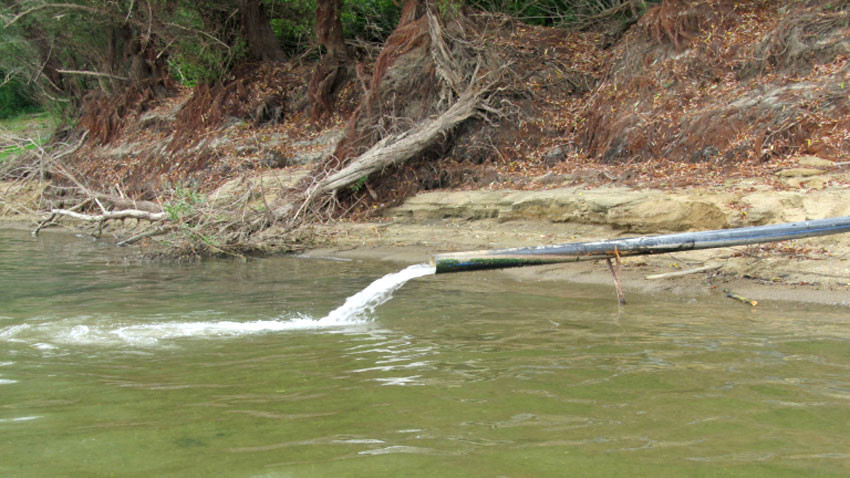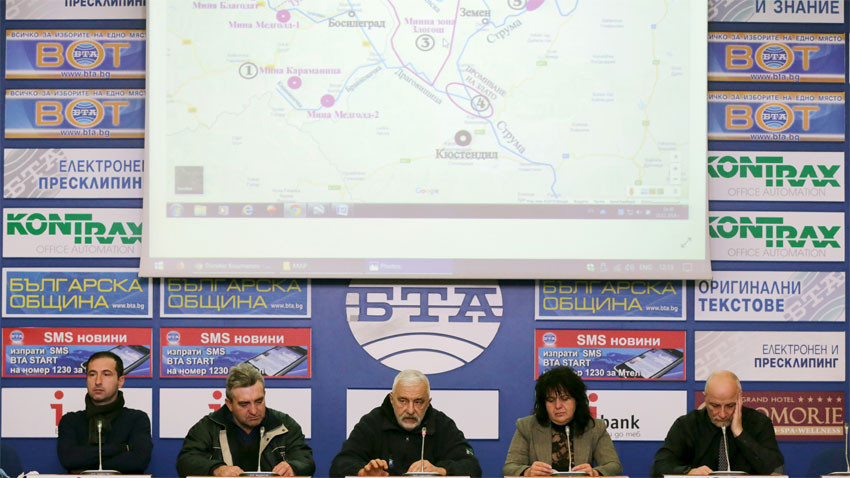
The population living on both sides of the Bulgaria-Serbia border has been worried for many years with the destruction of nature and its resources in the name of private interests. Environmentalists and public figures from both countries are concerned with the situation at the two mines for extraction of copper, lead and zinc near the Serbian villages Karamanitsa and Musul.
According to data of the Eko-Bio Pravda and Glas associations in Bosilegrad, announced at a special conference in Sofia, the mines pollute the feeders of Dragovishtitsa River, which flows into Struma River, with heavy metals. The two associations contend that concentration of hazardous waste in the river, the soil and the air in a radius of several kilometers from Karamanitsa mine is way above normal. There is still no reason for concern in Bulgaria, because there is no evidence of water pollution yet. However, things are much different on the other side of the Bulgaria-Serbia border. This region was until recently a favorite spot for tourism and recreation. However, it has been slowly depopulating. According to the Bulgarian community in Bosilegrad, this is due to the lack of job opportunities and increased pollution. Dimitar Kumanov from Balkanka association announced that in 2016 the Serbian authorities sent a letter to the Bulgarian Ministry of Environment and Water and asked the Bulgarian authorities whether they would participate at the Convention on Transboundary Assessment. However, the answer was sent five to six days after the six-week deadline and Bulgaria was unable to participate at the procedure, Mr. Kuzmanov went on to say.

The citizens of Kuystendil district expressed another concern at the press-conference. Recently, the Bulgarian government issued a three-year permit to a Canadian company to make exploration for minerals in the Zlogosh land. The chairperson of the Civil Initiative Committee in Kuystendil Za Chista Priroda Antonina Shiparova shared the concerns of the environmentalists:
Two geologists from Kuystendil district attended the establishment of out committee last year. They made explorations for minerals back in the communist period. According to their reports, the content of mercury in the soil in Zlogosh land is so high that puts the whole region at risk. The water sources will be polluted soon after the start of the explorations and the drillings. That is why it is important to prevent all types of studies and mining activities in this region.
Antonina Shiparova added that the association warned Kyustendil Municipality, as well as Treklyano and Zemlen municipalities about the problem. The municipal councils of the two municipalities voted against the exploration for minerals at the end of last year.
The Mayor of Kyustendil Petar Paunov also commented the hot topics concerning the lives and the health of the citizens of Kyustendil district. He contends that the local authorities would not allow any exploration activities on this territory and Kyustendil Municipality has already informed the Ministry of Environment and Water. Bulgaria’s Premier Borissov was also informed about this case, Mayor Paunov assured. Here is what Petar Paunov said about the signals related to the mines near Bosilegrad:
When the people from the Bulgarian community in Bosilegrad signaled about this problem, experts from Ecology Department, mayors and deputy-mayors started to check the water quality in the rivers. We approached different institutions such as the Basin Directorate with the Bulgarian Ministry of Environment and Water. The monitoring still continues, but so far we haven’t received any information about deviations from the environmental standards.
Enlgish version: Kostadin Atanasov
According to a 2023 National Statistical Institute study, more than 88% percent of households in Bulgaria have access to the Internet. Most users are online every day, and more than 95% are active on social networks. The share of people who read the..
Radio Bulgaria, as a program of the BNR published in 11 languages, has an audience spread over six continents. Part of it has a special attitude towards our country and wants to learn more about its history, culture, traditions and..
The international initiative No Elevators Day will be celebrated today with a climb to the fourteenth floor of the College of Tourism in Burgas. Anyone who wants to join in can test their physical strength by participating individually or in a team..
Radio Bulgaria, as a program of the BNR published in 11 languages, has an audience spread over six continents. Part of it has a special..
According to a 2023 National Statistical Institute study, more than 88% percent of households in Bulgaria have access to the Internet. Most users are..

+359 2 9336 661
